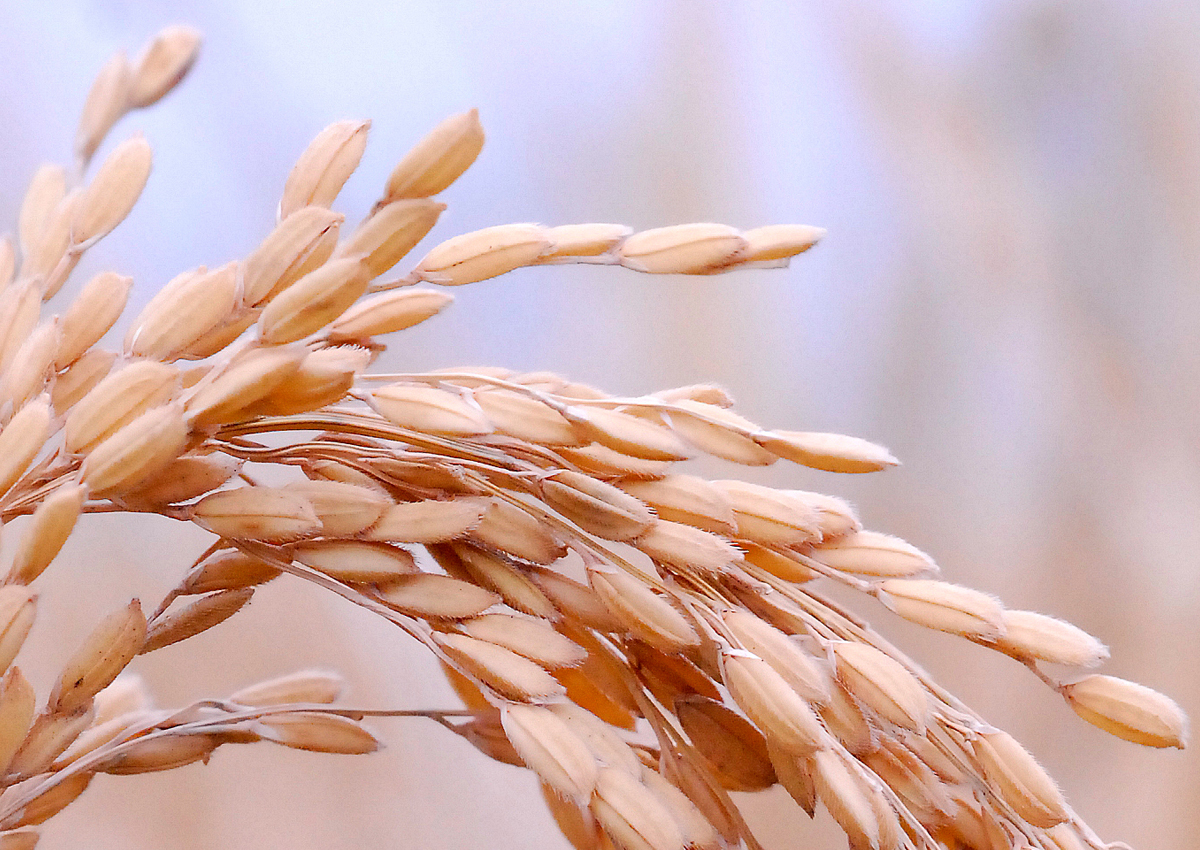
International Research Team Identifies Bacterium that Protects Rice Plants from Diseases
January 13, 2021| |
An international research group including researchers from the Institute for Environmental Biotechnology at Graz University of Technology have shown how a bacterium inside the seeds of rice plants effectively and environmentally friendly inhibits destructive plant pathogens.
The research group has been investigating the microbiome of rice plant seeds for some time in order to establish correlations between plant health and the occurrence of certain microorganisms. The group has now come to a major breakthrough and identified a bacterium inside the rice seed that can lead to complete resistance to a particular pathogen and is naturally transmitted from one generation of plants to another.
In China's province of Zhejiang, it was observed that rice genotype (cultivar Zhongzao 39) was sometimes resistant to the plant pathogen Burkholderia plantarii which leads to crop failures and produces a biotoxin that leads to organ damage and tumors in continuously exposed people and animals. The research group examined the microbiome of rice seeds from different regions in detail and found that resistant plants have a different bacterial composition inside the seeds, with the bacteria Sphingomonas significantly more present in resistant seeds.
The researchers isolated the bacteria from the seeds and identified the bacterium Sphingomonas melonis as the functional unit. This bacterium produces an organic acid (anthranilic acid) that paralyzes the pathogen and thereby renders it harmless. The bacterium establishes itself in certain rice genotypes and is then naturally passed on from one generation of plants to the next.
For more details, read the article in TU Graz News.
| |
Biotech Updates is a weekly newsletter of ISAAA, a not-for-profit organization. It is distributed for free to over 22,000 subscribers worldwide to inform them about the key developments in biosciences, especially in biotechnology. Your support will help us in our mission to feed the world with knowledge. You can help by donating as little as $10.
-
See more articles:
-
News from Around the World
- Study Shows Groups of Bacteria Can Work Together to Protect and Improve Crop Growth
- Viruses Found in Saltwater Microalgae Could Be the Key to Bio-saline Agriculture
- Chinese Scientists Discover Rice Gene for Adaptation to Low Soil Nitrogen
- Europe's Position on COVID-19 Vaccines Inconsistent with its GMO Stance
- International Research Team Identifies Bacterium that Protects Rice Plants from Diseases
- Defra Seeks Support for Gene Editing; Launches Consultation
-
Research Highlights
- Transgenic Chickpeas Exhibit Drought Tolerance, Increased Seed Yield Under Extremely Dry Condition
-
Plant
- CRISPR Offers Glowing Solution to Male Chicks Culling Problem
- Superbug Slaying Antibiotics Increase Production by Tenfold With CRISPR-Cas9
- Expert Proposes Techniques to Address Regulatory Concerns in Gene Editing
- Breakthroughs in Science Using TALENs
-
Health
- UChicago Creates First Computational Model of Entire COVID-19 Virus
-
Read the latest: - Biotech Updates (February 11, 2026)
- Gene Editing Supplement (January 28, 2026)
- Gene Drive Supplement (February 22, 2023)
-
Subscribe to BU: - Share
- Tweet

